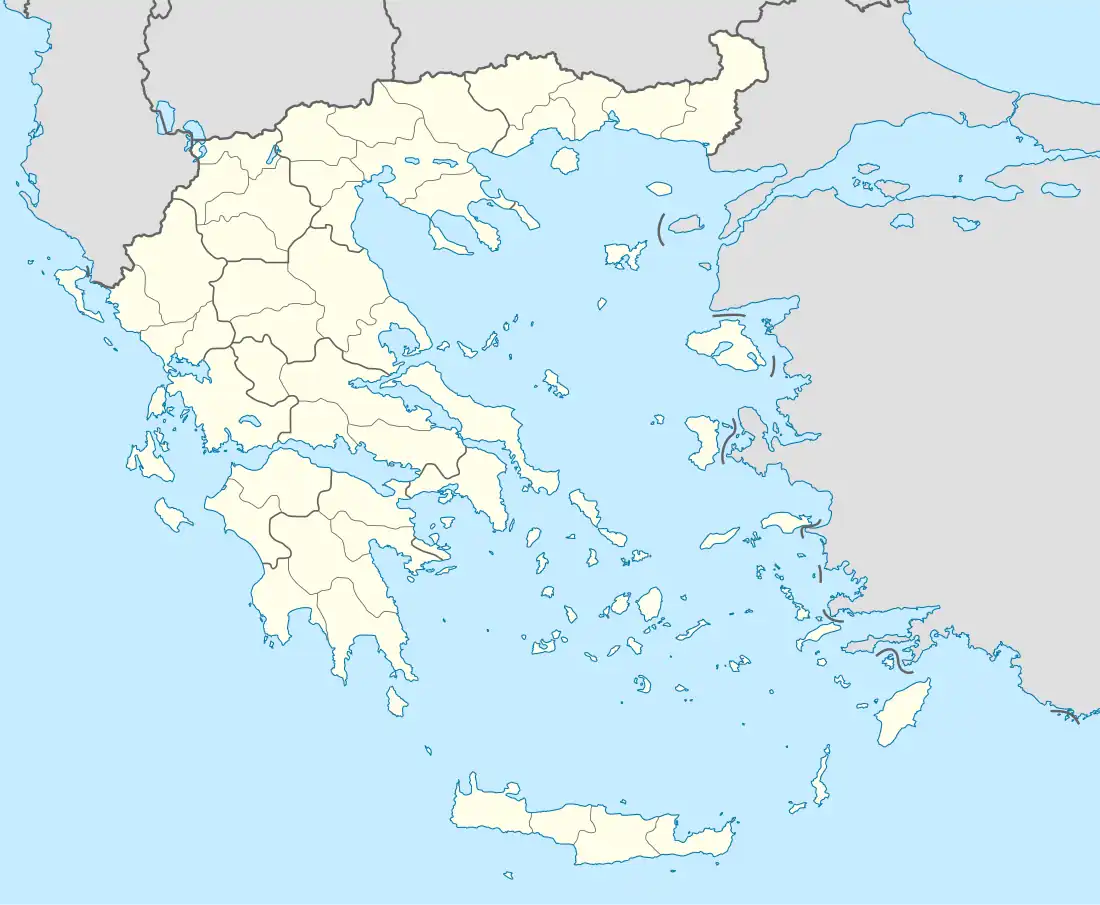Xifiani | |
|---|---|
 Xifiani | |
| Coordinates: 40°55′48″N 22°4′50″E / 40.93000°N 22.08056°E | |
| Country | Greece |
| Geographic region | Macedonia |
| Administrative region | Central Macedonia |
| Regional unit | Pella |
| Municipality | Almopia |
| Municipal unit | Aridaia |
| Population (2011)[1] | |
| • Rural | 767 |
| Time zone | UTC+2 (EET) |
| • Summer (DST) | UTC+3 (EEST) |
Xifiani (Greek: Ξιφιανή, before 1922: Κωστούργιαννη - Kostourgianni,[2] renamed until 1953: Ξυφώνια - Xyfoneia[3]) is a village in Pella regional unit, Macedonia, Greece.
After the village became part of Greece, its mosque was turned into the church of Agios Polykarpos.[4]
Xifiani had 923 inhabitants in 1981.[5] In fieldwork done by Riki Van Boeschoten in late 1993, Xifiani was populated by Slavophones and a Greek population descended from Anatolian Greek refugees who arrived during the Greek-Turkish population exchange.[5] The Macedonian language was spoken in the village by people over 30 in public and private settings.[5] Children understood the language, but mostly did not use it.[5] Pontic Greek was spoken in the village by people over 30 in public and private settings.[5] Children understood the language, but mostly did not use it.[5]
References
- ↑ "Απογραφή Πληθυσμού - Κατοικιών 2011. ΜΟΝΙΜΟΣ Πληθυσμός" (in Greek). Hellenic Statistical Authority.
- ↑ "Name Changes of Settlements in Greece: Kostourgianni – Xyfoneia". Pandektis. Retrieved 15 April 2022.
- ↑ "Name Changes of Settlements in Greece: Xyfoneia – Xifiani". Pandektis. Retrieved 15 April 2022.
- ↑ Stavridopoulos, Ioannis (2015). Μνημεία του άλλου: η διαχείριση της οθωμανικής πολιτιστική κληρονομιάς της Μακεδονίας από το 1912 έως σήμερα [Monuments of the other: The management of the Ottoman cultural heritage of Macedonia from 1912 until present] (Ph.D.). University of Ioannina. p. 207. Retrieved 28 March 2022.
- 1 2 3 4 5 6 Van Boeschoten, Riki (2001). "Usage des langues minoritaires dans les départements de Florina et d'Aridea (Macédoine)" [Use of minority languages in the departments of Florina and Aridea (Macedonia)]. Strates. 10. Table 1: Réfugiés grecs; Footnote 2: Le terme « réfugié » est utilisé ici pour désigner les Grecs d’Asie Mineure qui se sont établis en Grèce dans les années vingt après l’échange de population entre la Turquie et la Grèce (Traité de Lausanne, 1924); Table 4: Xifiani, 923; S, R, M2, P2; S = Slavophones, R = Refugiés, M = macédonien, P = dialecte pontique"